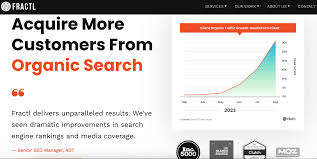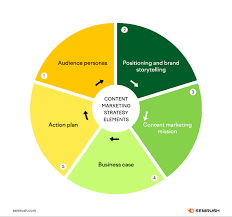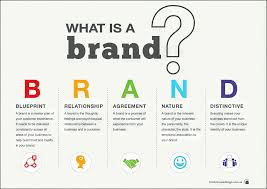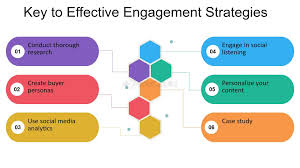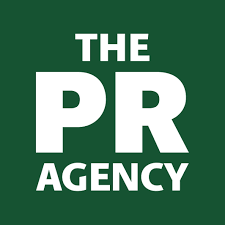The PR Agency: Building Brands and Driving Success
In today’s fast-paced and competitive business landscape, effective communication has become more crucial than ever. This is where a PR agency comes into play. A PR agency specializes in crafting and delivering strategic communication campaigns that help businesses build their brands, enhance their reputation, and achieve their goals.
At its core, a PR agency acts as a bridge between businesses and their target audience. It leverages various communication channels to deliver key messages that resonate with the intended recipients. From media relations to social media management, crisis communication to content creation, a PR agency offers a wide range of services tailored to meet the unique needs of each client.
One of the primary roles of a PR agency is to generate positive media coverage for its clients. By establishing strong relationships with journalists and media outlets, they are able to secure valuable press coverage that helps build brand awareness and credibility. Through press releases, media pitches, and strategic storytelling, a PR agency ensures that its clients’ stories are told in a compelling way.
Another key aspect of a PR agency’s work is managing reputation. In today’s digital age where information spreads rapidly, protecting and enhancing a brand’s reputation is paramount. A PR agency monitors online conversations, responds to customer feedback, and manages crises effectively to safeguard the brand’s image.
Moreover, a PR agency helps businesses establish thought leadership within their industry. By positioning key executives as experts in their field through speaking engagements, article placements, and industry awards, they elevate the brand’s credibility and influence. This not only attracts new customers but also strengthens relationships with existing ones.
A successful PR campaign requires careful planning and execution. A PR agency conducts thorough research to understand its clients’ target audience, competitors, and industry trends. Armed with this knowledge, they develop comprehensive strategies that align with the client’s goals. They then implement these strategies using an array of tactics such as media outreach, influencer partnerships, and content marketing.
Collaboration is key when working with a PR agency. They work closely with their clients to gain a deep understanding of their business objectives, values, and target audience. By forging strong partnerships, PR agencies become an extension of their clients’ teams, working together to achieve success.
In the ever-evolving world of communication, a PR agency stays ahead of the curve by keeping up with the latest trends and technologies. They embrace digital platforms and social media channels to reach wider audiences and engage with them in meaningful ways. By constantly evolving their strategies, they ensure that their clients remain relevant in an ever-changing landscape.
In conclusion, a PR agency plays a vital role in helping businesses navigate the complex world of communication. From building brands to managing reputations, they are experts in crafting compelling narratives that resonate with audiences. By partnering with a PR agency, businesses can unlock the power of strategic communication and drive success in today’s competitive market.
Commonly Asked Questions about PR Agencies in the UK
- What services does a PR agency provide?
- How much does a PR agency cost?
- What is the best way to measure the success of a PR campaign?
- How can I find an experienced and reputable PR agency?
- What are the benefits of using a PR agency?
- How can I ensure that my PR campaigns reach their target audience effectively?
What services does a PR agency provide?
A PR agency provides a wide range of services aimed at helping businesses effectively communicate with their target audience and achieve their communication goals. Some of the key services offered by a PR agency include:
- Media Relations: A PR agency establishes and maintains relationships with journalists, editors, and media outlets to secure positive media coverage for its clients. This includes drafting press releases, pitching stories to the media, arranging interviews, and managing media inquiries.
- Strategic Communication Planning: A PR agency develops comprehensive communication strategies tailored to the specific needs of each client. This involves conducting research, identifying target audiences, setting objectives, and outlining the key messages to be conveyed.
- Content Creation: A PR agency creates engaging and informative content that aligns with the client’s brand voice and resonates with their target audience. This can include press releases, articles, blog posts, social media content, website copy, and more.
- Crisis Communication: In times of crisis or reputation management issues, a PR agency plays a crucial role in developing effective crisis communication plans. They help clients navigate challenging situations by providing guidance on messaging, spokesperson training, media response strategies, and managing public perception.
- Thought Leadership: A PR agency positions key executives or experts within a company as thought leaders in their industry through strategies such as securing speaking engagements at conferences/events, ghostwriting articles for publication in industry publications or blogs, securing interviews on relevant podcasts or webinars.
- Social Media Management: With the rise of social media platforms as powerful communication channels, many PR agencies offer social media management services. This includes creating social media strategies, content creation and curation, community management, influencer partnerships and collaborations.
- Event Management: Some PR agencies also specialize in event planning and management services. They organize product launches, press conferences, trade shows participation coordination etc., ensuring that events are well-executed and aligned with the client’s communication objectives.
- Measurement and Analytics: A PR agency tracks and measures the effectiveness of communication campaigns using various metrics. This includes monitoring media coverage, analyzing website traffic, social media engagement, and sentiment analysis to provide insights and recommendations for future strategies.
It’s important to note that the services offered by a PR agency may vary based on their expertise, industry focus, and the specific needs of their clients. By leveraging their expertise in strategic communication, PR agencies help businesses build strong brands, enhance their reputation, and achieve their communication goals.
How much does a PR agency cost?
The cost of hiring a PR agency can vary depending on several factors, including the scope of work, the size and reputation of the agency, and the geographical location. PR agencies typically offer different pricing models based on their services, such as project-based fees, retainer fees, or hourly rates.
For smaller businesses or startups with limited budgets, project-based fees may be more suitable. With this model, the agency charges a fixed fee for specific projects or campaigns. This can range from creating a press release to organizing an event or managing a social media campaign.
Retainer fees are commonly used by businesses that require ongoing PR support. With this model, the client pays a monthly or quarterly fee to retain the services of the agency. The retainer fee covers a predetermined number of hours or services each month and allows for ongoing strategic planning and execution.
Hourly rates are sometimes used for specific tasks or ad hoc projects. In this case, the agency charges an hourly rate for their services. This can be beneficial when businesses require PR assistance on a sporadic basis or have short-term needs.
It’s important to note that pricing structures can vary significantly between agencies and regions. Larger agencies with established reputations tend to have higher fees due to their expertise and resources. On the other hand, smaller boutique agencies may offer more competitive rates while still providing quality service.
When considering hiring a PR agency, it’s crucial to have open discussions about budget expectations and discuss pricing options upfront. This allows both parties to align their expectations and ensure that there is a mutual understanding of deliverables within the agreed-upon budget.
Ultimately, investing in a PR agency should be viewed as an investment in your business’s growth and reputation. While costs may vary, working with professionals who understand strategic communication can yield significant benefits in terms of brand visibility, reputation management, and achieving your communication goals.
What is the best way to measure the success of a PR campaign?
Measuring the success of a PR campaign is crucial to determine its effectiveness and to make informed decisions for future strategies. While there is no one-size-fits-all approach, here are some key metrics and methods that can help gauge the success of a PR campaign:
- Media Coverage: Quantify the media coverage obtained through the campaign, including the number of articles, interviews, features, or mentions in relevant publications or media outlets. Analyze the quality and reach of the coverage by considering factors such as readership, viewership, or website traffic.
- Message Amplification: Assess how effectively your key messages were communicated and amplified across various media channels. This can be measured by tracking social media shares, retweets, comments, or engagement levels on specific content related to your campaign.
- Brand Awareness: Measure changes in brand awareness by conducting surveys or analyzing web analytics data to identify increases in website traffic, search engine rankings, or social media followers during and after the campaign. Compare these metrics with pre-campaign benchmarks to assess growth.
- Audience Engagement: Evaluate audience engagement by monitoring interactions with your campaign content. This includes measuring click-through rates on links shared in press releases or blog posts, time spent on webpages related to the campaign, or comments and feedback received from your target audience.
- Lead Generation: If lead generation is a goal of your PR campaign, track how many leads were generated as a result of specific activities such as webinars, whitepapers downloads, newsletter sign-ups, or inquiries received through dedicated landing pages.
- Sentiment Analysis: Analyze sentiment surrounding your brand before and after the campaign using social listening tools or sentiment analysis techniques. Assess whether there has been a shift in positive sentiment and if any negative sentiment has been mitigated.
- Business Impact: Connect PR efforts to tangible business outcomes such as sales figures, website conversions, customer acquisition rates, or market share growth over the campaign period. This may require collaboration with other departments, such as sales or marketing, to gather relevant data.
- Client Feedback: Seek feedback from clients or stakeholders involved in the campaign to understand their perception of its success. Assess whether the campaign met their objectives and if it positively impacted their business goals.
Remember that each PR campaign is unique, and the metrics used for evaluation should align with specific objectives and KPIs set at the outset. It’s essential to establish clear measurement criteria before launching a campaign to ensure accurate evaluation and continuous improvement in future campaigns.
How can I find an experienced and reputable PR agency?
Finding an experienced and reputable PR agency requires careful research and consideration. Here are some steps to help you in your search:
- Define your goals and objectives: Before seeking out a PR agency, clearly define what you hope to achieve through their services. Determine your target audience, key messages, and desired outcomes. This will help you find an agency that aligns with your specific needs.
- Seek recommendations and referrals: Reach out to colleagues, industry contacts, or business partners who have worked with PR agencies in the past. Ask for recommendations based on their experiences and the results they achieved. Referrals from trusted sources can provide valuable insights.
- Conduct online research: Use search engines to find PR agencies that specialize in your industry or geographical location. Visit their websites to learn more about their services, expertise, and client testimonials. Look for case studies or success stories that demonstrate their capabilities.
- Review portfolios and past work: Request samples of previous campaigns or projects from the agencies you are considering. Evaluate the quality of their work, creativity, and effectiveness in achieving desired outcomes. This will give you an idea of their capabilities and whether they align with your brand’s vision.
- Assess industry expertise: Look for PR agencies that have experience working within your specific industry or niche. They should understand the unique challenges and dynamics of your field, allowing them to develop tailored strategies that resonate with your target audience.
- Check credentials and reputation: Research the agency’s credentials, such as awards or certifications they have received. Look for professional affiliations or memberships in reputable industry organizations as well. Additionally, read online reviews or seek feedback from previous clients to gauge their reputation.
- Arrange consultations: Narrow down your options to a shortlist of PR agencies that seem promising based on your research so far. Schedule consultations or meetings with each agency to discuss your goals, ask questions about their approach, and assess if there is a good fit between your organizations.
- Evaluate communication and chemistry: During the consultations, pay attention to how well the agency listens to your needs and how effectively they communicate their ideas. Assess their level of enthusiasm, responsiveness, and willingness to collaborate. A good working relationship is essential for a successful partnership.
- Consider budget and resources: Discuss pricing structures and contracts with the agencies you are considering. Ensure that their fees align with your budget and that they can provide the necessary resources to meet your goals effectively.
- Request a proposal: Once you have narrowed down your options further, request a detailed proposal from each agency. This should outline their strategies, tactics, timelines, and expected outcomes. Compare these proposals carefully before making a final decision.
Remember, finding the right PR agency is a crucial investment in your brand’s success. Take the time to research thoroughly, ask questions, and choose an agency that not only has the expertise but also shares your vision for growth and success.
What are the benefits of using a PR agency?
Using a PR agency can bring numerous benefits to businesses looking to enhance their communication efforts and achieve their goals. Here are some key advantages of partnering with a PR agency:
- Expertise and Experience: PR agencies consist of professionals with extensive knowledge and experience in the field of public relations. They understand the intricacies of effective communication, media relations, crisis management, and more. Their expertise allows them to develop tailored strategies that align with your business objectives.
- Strategic Approach: A PR agency takes a strategic approach to communication. They conduct thorough research, analyze market trends, and identify target audiences to create impactful campaigns. By aligning their efforts with your business goals, they ensure that every communication initiative is purposeful and delivers measurable results.
- Media Relations: Building relationships with journalists and media outlets is crucial for gaining positive media coverage. A PR agency has established connections in the industry, enabling them to effectively pitch stories and secure valuable media opportunities for your brand. This helps generate brand awareness and credibility.
- Crisis Management: In times of crisis or negative publicity, a PR agency can provide invaluable support. They are experienced in handling sensitive situations, managing reputational damage, and developing crisis communication plans. Their swift response and strategic guidance can help mitigate potential harm to your brand’s reputation.
- Thought Leadership: Establishing thought leadership within your industry positions your brand as an authority in the field. A PR agency can help identify opportunities for executive visibility through speaking engagements, article placements, expert commentary, and awards nominations. This enhances your brand’s credibility, attracts new customers, and strengthens relationships with existing ones.
- Time-saving: Managing comprehensive communication campaigns requires significant time investment. By outsourcing these responsibilities to a PR agency, you free up valuable internal resources that can be redirected towards core business activities. The agency takes care of planning, execution, monitoring, and reporting on your behalf.
- Objective Perspective: As an external partner, a PR agency brings an objective perspective to your communication efforts. They can provide unbiased feedback and insights, helping you identify areas of improvement and capitalize on opportunities that may have been overlooked internally.
- Adaptability and Innovation: PR agencies stay up-to-date with the latest trends, technologies, and best practices in the industry. They continually adapt their strategies to leverage emerging platforms and channels for maximum impact. This ensures that your brand remains relevant and effectively engages with target audiences.
- Cost-effective: Hiring a full-time, in-house PR team can be costly for many businesses, especially smaller ones. Engaging a PR agency allows you to access a team of professionals at a fraction of the cost. It provides flexibility in terms of project-based or retainer-based engagements, allowing you to scale your communication efforts according to your needs.
In summary, partnering with a PR agency offers businesses access to expertise, strategic guidance, media relations networks, crisis management support, thought leadership opportunities, time savings, objectivity, adaptability, innovation, and cost-effectiveness. These benefits can significantly enhance your brand’s communication efforts and contribute to overall business success.
How can I ensure that my PR campaigns reach their target audience effectively?
Ensuring that your PR campaigns reach their target audience effectively requires careful planning and execution. Here are some key strategies to consider:
- Define your target audience: Start by clearly identifying who your target audience is. Understand their demographics, interests, behaviors, and preferences. This will help you tailor your messages and choose the most relevant communication channels.
- Conduct thorough research: Gather insights about your target audience’s media consumption habits, preferred platforms, and influencers they follow. Use market research, surveys, social listening tools, and analytics to gain a deeper understanding of their preferences.
- Craft compelling messages: Develop messages that resonate with your target audience. Focus on addressing their pain points or offering solutions to their needs. Use language that is clear, concise, and relatable.
- Choose the right communication channels: Select the most appropriate channels to reach your target audience effectively. This may include traditional media outlets (newspapers, magazines), online platforms (websites, blogs), social media networks (Facebook, LinkedIn), or industry-specific publications.
- Build relationships with relevant journalists and influencers: Establish connections with journalists and influencers who have a strong presence within your target audience’s sphere of interest. Engage with them through personalized pitches or collaborations to increase the chances of getting coverage or endorsements.
- Utilize content marketing: Create valuable content such as articles, blog posts, videos, or infographics that align with your target audience’s interests and needs. Distribute this content through various channels to attract attention and establish thought leadership.
- Leverage social media: Leverage social media platforms to engage directly with your target audience. Share relevant content regularly, respond promptly to comments or inquiries, and participate in industry-related conversations.
- Monitor and analyze results: Continuously monitor the performance of your PR campaigns using analytics tools and metrics such as website traffic, social media engagement rates, press mentions or shares obtained. Analyze these results to gain insights into what works and what needs improvement.
- Adapt and optimize: Based on the insights gained from monitoring and analysis, refine your PR strategies accordingly. Adjust your messaging, target new channels, or experiment with different tactics to optimize your reach and engagement.
- Seek professional assistance: Consider partnering with a PR agency or hiring a PR professional who has expertise in reaching specific target audiences. Their experience and industry knowledge can provide valuable guidance and ensure effective campaign execution.
By implementing these strategies, you can increase the likelihood of reaching your target audience effectively and maximizing the impact of your PR campaigns.




